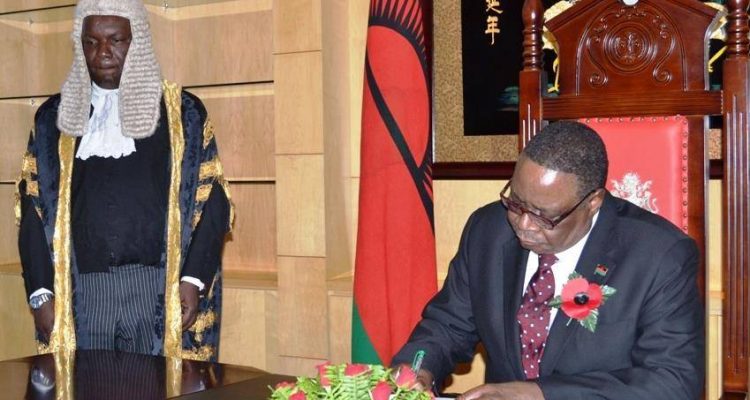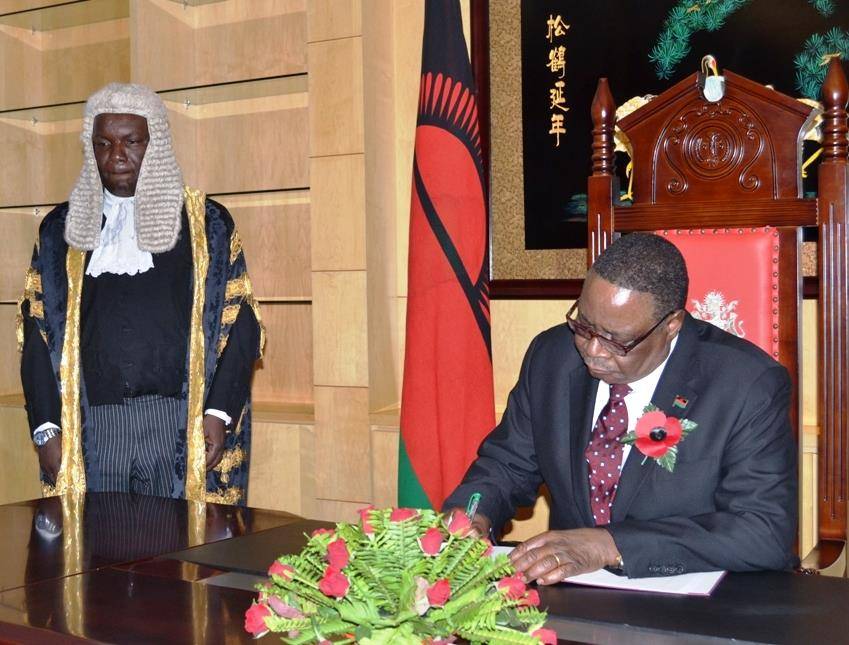
law crucial to people in mining areas
Some of the country’s Civil Society Organizations (CSOs) advocating for transparency in the extractive industry have pressed President Peter Mutharika to assent to the Access to Information (ATI) Bill into law saying the legal framework will help communities to access information about environmental, health, and safety risks the sector possess on them.
The call comes barely a month after Malawi Parliament passed the controversial bill in December, 2016 with expectation that President Mutharika will assent it into law.
National Assembly Spokesperson Leonard Mengezi told the nation last week that after 30 days Parliament passed the bill into law, his office did not submit it to the President.

Mengezi disclosed that the bill had a lot of amendments to which several stakeholders had to give input before the final one could be submitted to the President.
He added that the process to send the bill to the head of state delayed due to a government sanctioned festive holiday which started not long after Parliament adjourned.
But in a joint statement released on Wednesday, and made available to Malawi24, three CSOs– Human Rights Watch (HRW), Natural Resources Justice Network (NRJN) and Centre for Law and Democracy (CLD)–have expressed worries over the delay in assenting to the bill saying communities will continue having daunting task to hold duty-bearers accountable in the extractive industries.
According to HRW 2016 report revealed that families living near coal and uranium mining operations in Malawi face serious challenges including water, food, housing and health risks.
Therefore absence of this law creates uncertainties and anxiety amongst communities as to where they can obtain information to better defend their well being.
The body observes that Malawi lacks adequate safeguards to ensure that development efforts are always consistent with protecting the rights of local communities, and that weak government oversight and a lack of information leave local communities unprotected.
“The new law means that people in Malawi’s mining communities should be able to get vital information they need to protect their lives and livelihoods. The president should sign the law, and the government should act quickly to put it into effect”, said HRW researcher Katharina Rall.
Concurring with Rall, Kossam Munthali NRJN Chairperson added that residents in mining communities and non-governmental organizations in Malawi can not get sufficient information about planned mining operations and any associated risks, fueling concerns about serious respiratory diseases, and other health and environmental impacts.
Munthali also observed that though government monitors the impact of mining but that it does not release the results to affected communities.
“Mining communities we work with applaud parliamentarians for passing the Access to Information Bill, which could also help push the government to release information about the oil and gas exploration around Lake Malawi. Without information on the government’s position, civil society groups are unable to assess the potential risk that oil exploration poses to the lake and land or to engage on this issue”, said Munthali.
On his part, Michael Karanicolas, senior legal officer at CLD added that among the most important components in a successful right to information system is effective and independent oversight.

“Having allocated these crucial responsibilities to the Human Rights Commission, Malawi’s government should also make sure that the commission has additional resources and capacity, as required, to perform this role”, said Karanicolas.
Malawi’s parliament adopted the ATI bill with amendments on December 14, 2016 and was sent to President Mutharika on January 16, 2017 hoping that it will be assented into law before mid-year budget review meeting slated for February 6 to March 2, 2017.
The provisions of the new information bill, if adequately implemented, could ensure that Malawians would be able to request and obtain the information they need from all government authorities as guaranteed by the Constitution.
The bill states that the information law will prevail in cases of conflict with other legislation, preventing the government from citing other laws that prohibit disclosure of information, such as any current or future mining-related legislation.
The legal framework also addresses concerns raised by Malawian non-governmental groups about previous drafts.
The bill says that the Malawi Human Rights Commission, the national human rights institution, will handle the oversight and appeals function of the law.
It tasks the commission with disseminating information about how citizens can claim their right to know and with carrying out monitoring and evaluation procedures.















Kodi ndekuti basi Chaponda waba chimanga chathu?
Go ahead,ATI is our Right. Tell muthalika ,ATI Bill is for malawians.
Malawi 24 please don’t give us this sh*****t politics news we are tied of this sh******t